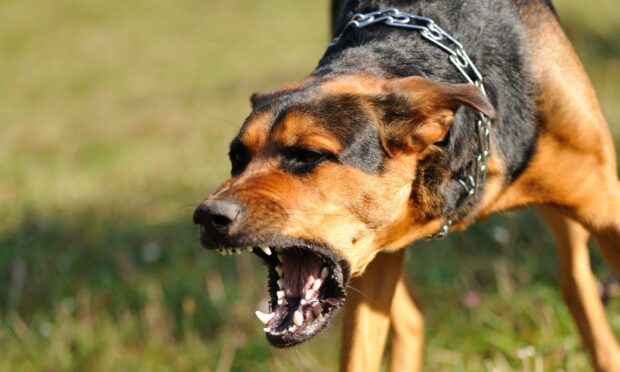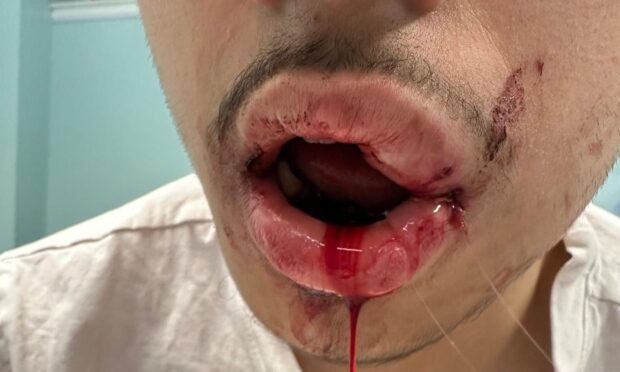New figures have shown a four-fold increase in dog bite victims seeking treatment at Tayside’s biggest A&E unit.
Between 2021 and 2024, the number of folk attending Ninewells accident and emergency with a dog bite injury rocketed from 97 to almost 400.
And the past five years have seen the number of victims being kept in hospital for treatment double.
NHS Tayside revealed the increases in a Freedom of Information response to The Courier.
The request was made in the wake of a spate of reported dog attacks on humans and other pets. A number have led to prosecution.
What did the Ninewells dog bite FOI response reveal?
Dog bite cases at Ninewells A&E went from 166 in 2020 to 389 in 2024.
But pandemic lockdown restrictions appear to be reflected in a dip from 166 to 97 between 2020 and 2021.
There was then a three-fold increase in 2022, and numbers have increased steadily since.
The severity of dog bite injuries has also led to an upward trend in the number of victims being kept in hospital for treatment.
From 66 in 2020, the total had almost exactly doubled to 132 by 2024.
The health authority was, however, unable to fully detail the treatment administered to those who attended A&E in each of the five years.
And the figures are thought to represent only part of the total picture.
NHS Tayside said it was also unable to provide figures for the number of people who attended at minor injury units with dog bite injuries.
The FOI response said: “Minor injury units data is reported to Public Heath Scotland.
“The data is only held at diagnosis category level, which means that no specific information is held and therefore extractable.”
The NHS Tayside statistics are consistent with the rate of an upward trend reported by Public Health Scotland in the past decade.
But they also did not reveal if those seeking treatment had been bitten by their own pets.
“This information is not held by NHS Tayside,” the FOI response added.
Court action over dog attack offences
The issue of dog attacks and owner responsibility has intensified in recent years.
In particular, it has prompted debate around dogs being kept on leads.
There was a surge in new dog owners during Covid-19.
That, in turn, is believed to have led to behaviour problems among many so-called pandemic puppies due to lack of socialisation.
The Courier has reported a number of dog attack cases in local courts.
In one of the most serious, a teenager was locked up after his Doberman left a toddler needing 13 stitches following a horrific Dundee incident.
Owners have been ordered to pay compensation, and a number of animals destroyed.











Conversation